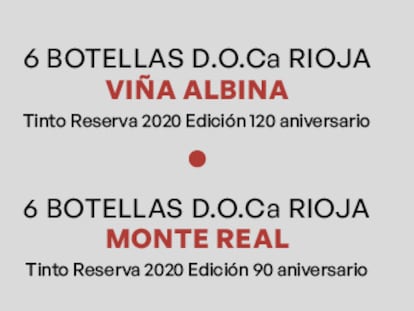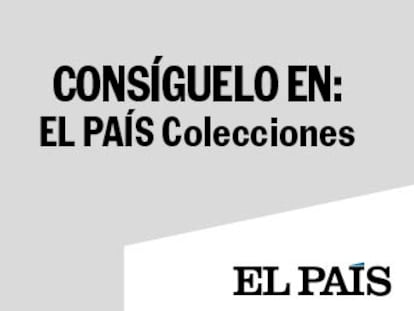Cable sobre la recepción al jefe del AFRICOM en España
La Embajada de EE UU en Madrid informa del encuentro entre altos mandos de Defensa y el nuevo responsable del mando del Pentágono
| ID: | 158964 |
| Date: | 2008-06-20 06:26:00 |
| Origin: | 08MADRID685 |
| Source: | Embassy Madrid |
| Classification: | CONFIDENTIAL |
| Dunno: | 08MADRID678 |
| Destination: | VZCZCXYZ0000 RR RUEHWEB DE RUEHMD #0685/01 1720626 ZNY CCCCC ZZH R 200626Z JUN 08 FM AMEMBASSY MADRID TO RUEHC/SECSTATE WASHDC 4960 INFO RUEHAS/AMEMBASSY ALGIERS 4000 RUEHBP/AMEMBASSY BAMAKO 0040 RUEHDK/AMEMBASSY DAKAR 0143 RUEHLI/AMEMBASSY LISBON 1712 RUEHNJ/AMEMBASSY NDJAMENA 0013 RUEHNM/AMEMBASSY NIAMEY 0130 RUEHNK/AMEMBASSY NOUAKCHOTT 1161 RUEHRB/AMEMBASSY RABAT 6097 RHMFISS/CDR USEUCOM VAIHINGEN GE RUEKJCS/JOINT STAFF WASHDC RUEKJCS/OSD WASHDC RUEWMFD/HQ USAFRICOM STUTTGART GE |
C O N F I D E N T I A L MADRID 000685 SIPDIS E.O. 12958: DECL: 06/18/2018 TAGS: PREL, MARR, AF, SP SUBJECT: JUNE 8-11 VISIT TO SPAIN OF COMMANDER, U.S. AFRICA COMMAND REF: MADRID 678 Classified By: DEPUTY CHIEF OF MISSION HUGO LLORENS, REASONS 1.4(B) AND (D). 1. (C) Summary: General William E. "Kip" Ward, Commander U.S. Africa Command, visited Spain June 8-11 for meetings with Spanish officials regarding AFRICOM. The primary purpose of the visit was to meet with Spanish leaders to discuss AFRICOM as well as listen and learn from their experiences on the continent and island nations. General Ward met with Chief of Defense General Felix Sanz, Secretary General of the Presidency Bernardino Leon, MFA Secretary of State for Foreign Policy Angel Lossada, and MOD Secretary General for Defense Policy Luis Cuesta. He also gave an interview to leading Spanish daily El Pais. Throughout, General Ward stressed that AFRICOM represented not the "militarization" of Africa but a serious and important effort by the U.S. to make its engagement with the nations of Africa security and humanitarian issues more effective. He solicited Spanish views and heard that, while Spain's historical interest in North Africa has not diminished, its interest sub-Saharan Africa is growing rapidly. The Spanish response to General Ward's briefings on AFRICOM was very positive and indicated a strong willingness to work cooperatively with the new command. End summary. What AFRICOM Is and Is Not -------------------------- 2. (C) In all of his meetings, General Ward stressed that AFRICOM was not about the militarization of Africa. Security assistance activities with many African nations were already underway and had been for some time. There were already Offices of Security Cooperation in many African countries. The U.S. was heavily engaged in humanitarian and development efforts on the continent. AFRICOM's role was to bring greater focus to existing security assistance programs and enhance the ability of the U.S. military to support USG efforts across the board in Africa. He explained that AFRICOM would be combining functions presently performed by EUCOM, CENTCOM, and PACOM. The change was less in what the U.S. did than in how it was done. AFRICOM had a construct that was inclusive of a large number of civilian agencies (including the Departments of Treasury and Commerce and USAID) and this would increase the command's awareness and understanding of what other agencies were doing to execute U.S. policy in Africa. The large number of civilians assigned to AFRICOM were not simply liaison officers, but integral members of the command. AFRICOM's role was not to take over those activities but to support them effectively. General Ward noted that AFRICOM had two deputy commanders, a flag officer for military operations and a Department of State former ambassador to handle civil and humanitarian affairs. 3. (C) General Ward stressed to all his Spanish interlocutors that AFRICOM wanted to avoid conflicting with other international actors and donors. General Ward said AFRICOM also wanted to reinforce positive European engagement with Africa, not replace it. AFRICOM wanted to support and complement what others were doing. AFRICOM meant Africa would be getting added focus from the U.S. and over time that would make a positive difference to Africa and foster stability on the continent. General Ward stressed his interest in Spanish views and the importance of Spanish cooperation. He asked that Spain continue the dialogue with the U.S. on Africa. 4. (C) General Ward said the terrorism threat in Africa was very real. Al Qaida made no secret of its aims against the west. He noted AFRICOM would play an important role in helping the states of the Sahel develop the capacity to face these threats. He explained that AFRICOM had a multi-disciplinary construct that would facilitate coordination with other USG agencies as well as international partners working in Africa. General Ward commended Spain for the participation of its naval personnel in Africa Partnership Station activities. He noted the Operation Enduring Freedom - Trans-Sahara components of the Trans-Sahara Counterterrorism Partnership would pass from EUCOM to AFRICOM. General Ward noted U.S. interest in tracking the movements of foreign fighters via the Sahel. 5. (C) The Spanish were interested in the basing issue, but General Ward made clear that his priority is standing up his headquarters and his command. The question of AFRICOM's permanent home was one for the future. Chief of Defense ---------------- 6. (C) Spanish Chief of Defense General Felix Sanz was quick to tell Ambassador Aguirre and General Ward that he needed no convincing: he was already a strong supporter of AFRICOM. He said he had confidence in U.S. undertakings and valued his long association with the U.S. military. Sanz said AFRICOM's success would be Spain's success. He noted an appreciation for the comprehensive approach AFRICOM was taking, beyond the strictly military to military, and the strong civilian component within the command. 7. (C) Sanz said he was trying to educate the political levels of the government and welcomed any information AFRICOM could provide to assist him in that effort. He said he would report on General Ward's visit, using that as yet another opportunity to remind senior civilian leaders of what AFRICOM meant for Spain. He urged General Ward to stay in close contact. He said the Spanish military would be there for AFRICOM, subject of course to the policy direction of the political leadership. Sanz noted Spain's long historical association with North Africa (he recounted that a few years ago three of the four members of Spain's Joint Chiefs of Staff were born in Africa), but he also stressed Spain's growing interest in Africa as a whole, triggered in part by illegal immigration to the Canary Islands. Sanz said no other area of the world affected Spanish interests more than Africa. 8. (C) Sanz urged General Ward to be stubborn in building an understanding of and support for AFRICOM's mission. He noted there were political factors that could not be ignored, but insisted the key was to be persistent and keep explaining the positive goals of AFRICOM. He predicted those in Spain who understood the problems of Africa would be supportive. Sanz also suggested stressing to political interlocutors the benefits to Spain of AFRICOM. He suggested that in terms of Spanish involvement, a modest start would give people a chance to become accustomed to the idea. Secretary General of the Presidency ----------------------------------- 9. (C) Secretary General of the Presidency Bernardino Leon spent nearly 90 minutes with General Ward and talked extensively about Spanish views on Africa. Leon said Spain worked closely with Algeria and Morocco and, like the U.S., was very concerned about the movement of foreign fighters in the Maghreb. Leon said although the date had not been announced, President Zapatero would travel to Morocco July 7. 10. (C) On Western Sahara, Leon said Algeria had rebuffed a Moroccan proposal to open the border. The excuse was concern over Western Sahara but Leon doubted this. He suspected Algeria remained unhappy over what they regarded as Morocco's unhelpful attitude during Algeria's civil war. Leon said it was time for Algeria to accept Morocco's apology and open the border. He said Spain had proposed a joint energy project which Algeria had not yet opposed although Leon noted an Algerian tendency to raise objections at the last moment and to use Western Sahara as an excuse. Leon said Algeria was aware Morocco would never leave Western Sahara. Algeria was simply trying to make things more complicated for Morocco and use the issue as leverage on other matters. Leon noted five percent of Morocco's GDP was tied up in Western Sahara. He predicted current talks would fail but said he did not expect a military response from Polisario. 11. (C) Leon noted sub-Saharan Africa was becoming a very important of Spain's national security concerns and presented multiple complex challenges. He said Spain was especially concerned about the Sahel which he described as a line running from troubled states such as Somalia and Sudan all the way across to the Canary Islands. He noted Spain had recently opened new embassies in Mali, Niger, and Sudan. Leon stated Spain was working on an updated (2008-2012) version of its Plan Africa for the sub-Sahara. He also said the Foreign Ministry was elevating sub-Saharan Africa to a full director generalship (until recently it had been handled by a sub-DG under a DG also responsible for North Africa and the Middle East) and that Spanish aid for the region had multiplied five times since 2004 (approaching one billion euros). 12. (C) Leon predicted President Zapatero would travel often to sub-Saharan Africa in his second term. He also noted Spain planned to organize a summit with the Western African states and would be open to U.S. participation or observation. Leon said his personal experience in Africa went back over many years and included postings in Liberia and Zaire. He mentioned Spain's deployment of troops to the UN mission in the Democratic Republic of the Congo and the current deployment of two cargo aircraft and support personnel to the EU mission in Chad. Leon said Spain was trying to organize a framework for cooperation in West Africa to help those countries confront the threat from organized crime. He said states such as Guinea-Bissau were weak and vulnerable to drug, arms, and alien traffickers. Leon noted Sudan was very complicated with the north-south problem unresolved and Darfur getting even more complicated. He opined that the current system of sanctions was ineffective given the attitude of China. 13. (C) Leon mentioned he had recently visited Chad. He said it was important to work with the AU, but he was pessimistic. He did not expect anything from the Libyans, and he suggested a need to find some way to work with the Chinese in Africa. He noted they were widely present on the continent but did not see many of the troublesome regimes as the West saw them. 14. (C) Leon predicted Mali and Niger could do well with the support of the international community. He noted Spain was trying to help and that the Ministry of Interior was engaging with counterparts there. He noted Spain had embassies and developmnt offices in both countries and was setting up a language institute in Bamako. He suggested the U.S. and Spain look at donor coordination and information sharing. Leon was optimistic about Ivory Coast, opining that Gbagbo was very intelligent and that the Ivory Coast was important to stability in the region. Leon said Spain was interested in helping in the region. He said Conakry Guinea had a good president but suffered from corruption. He noted Spain had seen a problem with merchant vessels leaving Conakry headed for the Canary Islands, and Spanish intelligence services were trying to keep an eye on the situation. He was even more critical of Guinea Bissau. He said he had visited and urged the president to fire the MOI, which he did, but Leon said everyone in the government was tainted to some degree by corruption. He noted the islands operated almost as independent states (he cited a French hotel with its own airstrip which operated without regard to the country's customs and immigration authorities). He said some of the islands had airstrips which were being used by South American drug traffickers. Spain was considering providing some job training, repairing a road to improve access to the main harbor and perhaps sending a patrol boat to be jointly manned by Spanish and local officials. 15. (C) Turning to Senegal, Mauritania, and the Gambia, Leon said Spain was working to improve their capacity. He said law enforcement cooperation with Senegal was good and noted Spain had helped set up a small command center connected to the Spanish authorities in the Canary Islands. Leon said the government in Mauritania was weak, and he worried terrorists might attempt to destabilize the country. He said Spain would probably send some security assistance trainers. 16. (C) With regard to Liberia and Sierra Leon, Leon noted Liberia used to produce rice for the entire region and the destruction of other crops more recently introduced might present an opportunity to reintroduce rice. He said Spain was studying an ECOWAS electricity project that would consist of funding a feasibility study for electric integration in West Africa aimed at the rural population. He said the study would cost $10 to $11 million. He also mentioned some sub regional infrastructure projects such as repair of the Dakar-Bamako railway and the Bamako-Conakry road. He noted these projects would be very expensive and were not things Spain could do alone. 17. (C) Leon said Spain had developed good relations with Angola and Mozambique in the wake of Portugal's withdrawal. He noted Spain's interest in Equatorial Guinea, which he said had a good chance for progress thanks to its natural resources. He noted the last elections were a missed opportunity to create more space for the opposition. He said Spain was trying to convince the government of the need for reform and mentioned they had given the government of list of 27 political prisoners who should be released, most of whom had been set free. He noted the good cooperation between the U.S. and Spanish Embassies in Equatorial Guinea and suggested both countries should deliver a message on democracy. Secretary of State for Foreign Affairs -------------------------------------- 18. (C) Angel Lossada, the new number two in the Foreign Ministry, stressed that Africa was no longer a far away place to Spain. Thanks to globalization, terrorism, immigration, and organized crime -- not to mention the proximity of the Canary Islands -- sub-Saharan Africa was now on Spain's doorstep. Engagement and investment was increasing. Lossada noted Spain had opened six new embassies in the region in recent years, mainly in the Sahel. Development assistance was now approaching the one billion euro mark. Plan Africa was being continued out to 2012 and would provide coherency to Spain's activities in sub-Saharan Africa. 19. (C) Lossada stressed the porosity of borders in Africa and the threat from Al Qaida in the Maghreb. He noted the engagement by the Ministry of Interior on law enforcement and security issues (e.g. Frontex, joint maritime patrols with some West African countries, etc.). Lossada identified lack of economic opportunity and good governance as key challenges and said Spain was trying to help address these problems. Lossada said Spain was trying to stem illegal immigration not only by improving the law enforcement response but by working with source countries on creating more opportunity at home, directing remittances towards productive economy activity, etc. Lossada noted Spain's recent contribution of two military transport aircraft and support personnel to the EU effort in Chad. Echoing what Leon had said, Lossada stressed that the Sahel was in effect a lateral highway into the Middle East. 20. (C) Keying off General Ward's remarks on the Africa Partnership Station, Lossada said he could see many avenues for cooperation in Africa. Lossada said he was certain the U.S. and Spain could find ways to mutually reinforce each other's work in Africa. Secretary General for Defense Policy ------------------------------------ 21. (C) Secretary General for Defense Policy Luis Cuesta commended the comprehensive approach of AFRICOM and said Spain likewise was trying to take a broad vision of the continent. Cuesta likened AFRICOM to a provincial reconstruction team for Africa. He noted the objectives of AFRICOM meshed well with Spain's own interests in counter-terrorism and fighting drug trafficking and illegal immigration. As did all General Ward's interlocutors, Cuesta stressed that Africa had become a priority for Spain. Cuesta said the objectives of AFRICOM were favorable to Spain's interests in the region. He noted the increased Spanish diplomatic presence and increased aid. 22. (C) Cuesta noted the rise in illegal immigration to Spain from Africa and Spain's efforts to stem that, in part by increasing security engagement with West Africa (Frontex, Operation Noble Sentinel, joint patrols, etc.). Cuesta also pointed to Spain's efforts to support economic development in the source countries, including job training both to encourage people to stay home and to ensure those coming to Spain via legal channels had the skills they needed to succeed. Cuesta mentioned technical assistance and training to police in Niger and Mali. He said Spain had offered military training in 18 African countries and had eight bilateral agreements on defense and was negotiating another six. Cuesta also noted Spain's involvement in EU and UN operations in Africa (e.g., Chad, the Democratic Republic of the Congo, etc.). Cuesta mentioned Spain was leading an EU mission on security sector reform in Guinea Bissau. He noted Spain was offering training via its center for international demining. 23. (C) Cuesta said the Spanish view of AFRICOM would to a great extent be shaped by the views of the African countries with which Spain had close relations. He said Spanish observers in AFRICOM exercises and training evolutions would be a positive step. Cuesta suggested there might be an increase in operational tempo at Rota and Moron due to AFRICOM and assured General Ward that Spain was ready to support that in accordance with the bilateral Agreement on Defense Cooperation, although he noted it would be difficult for Spain to participate in or support direct action missions in Africa without some stamp of international legitimacy such as the consent of the country in question or a UNSCR. 24. (C) Cuesta said transparency would be a key element for success in terms of securing Spanish support for AFRICOM's activities. General Ward noted the Africa Partnership Station experience with Spain had been positive. He also mentioned involving Spain in Flintlock. General Ward said as AFRICOM becomes fully operational Spain should not expect changes except in the sense of more information and greater willingness to include Spain. General Ward said observers were welcomed but participants from Spain would be even better. He noted the Spanish who had participated in the Africa Partnership Station had contributed a great deal. 25. (C) Asked about what concerns he had heard expressed about AFRICOM, Cuesta said Spain had heard skepticism from the Sudanese and South Africans. Nevertheless, Cuesta said security force reform, security assistance, development aid, etc. was music to Spain's ears and that was why General Ward's visit was so important. Cuesta noted Africa was only 12 kilometers from Spain and said Spain had long watched the Maghreb closely but was now paying more attention to sub-Saharan Africa. Spain Eager to Send Liaison Officer ----------------------------------- 26. (C) Both General Sanz and Luis Cuesta expressed strong interest in sending a liaison officer to AFRICOM. Cuesta said he had mentioned this idea to the MOD (Note: As detailed in reftel, the MOD in turn mentioned the idea to Ambassador Aguirre during a June 10 breakfast. She also told the Ambassador Spanish public opinion would be critical in determining the level of GOS engagement with AFRICOM and said that while the GOS was interested in being a part of efforts in Africa, much work remained to be done. She asked that the USG coordinate closely with Spain on next steps. End note). General Ward explained he would be very open to the possibility of a Spanish military liaison officer at AFRICOM once the command was prepared to receive liaison officers. Somali Pirates -------------- 27. (C) Leon, Lossada, and Cuesta all stressed the problem of piracy off Somalia and cited the recent capture of a Spanish fishing vessel in April (and repeated that Spain was grateful for U.S. assistance in that instance). They indicated Spain was taking a serious look at a possible multinational response. Leon mentioned he had just returned from Washington where he had discussed the idea with the NATO SYG. Leon hoped that with UNSCR 1816 it would be possible to organize an international response. Cuesta said Spain might be organizing a meeting for the defense and foreign ministries of the countries that had supported UNSCR 1816 to see what concrete action might be taken. Cuesta added that Spain might also try and work this issue via the EU. General Ward agreed piracy was a common threat. He noted the passage of the UNSCR 1816 had been a positive step. He acknowledge there could be opportunities for cooperative action but made clear that decisions regarding anti-piracy operations would be made on a political level. Press ----- 28. (U) General Ward was interviewed by a journalist from leading Spanish daily El Pais and had the opportunity to make many of the same points he had made in his private meetings regarding the purpose of AFRICOM and its benefits to Spain and other countries with interests in the region. The article that resulted was straightforward, and we are sure will help demystify AFRICOM for many Spaniards. Comment ------- 29. (C) General Ward's visit to Spain was a resounding success from our point of view. He was able to meet with senior Spanish officials and reassure them about the purpose and vision of AFRICOM. In each case, he encountered a very serious and thoughtful response as well as a clear disposition to work with AFRICOM. General Ward conveyed very effectively a genuine interest in Spain's views and a disposition to work cooperatively with our Spanish allies. We are convinced this visit and General Ward's deft handling of his Spanish interlocutors will pay enormous dividends down the road as we try to coordinate or even combine U.S. and Spanish efforts in Africa or if we ever decide to base some portion of AFRICOM in Spain. We are extremely grateful that General Ward committed so much time and effort here and look forward to a return visit at his earliest opportunity. AGUIRRE |
Traducción automática. Puede que el texto traducido no sea fiel al original
Tu suscripción se está usando en otro dispositivo
¿Quieres añadir otro usuario a tu suscripción?
Si continúas leyendo en este dispositivo, no se podrá leer en el otro.
FlechaTu suscripción se está usando en otro dispositivo y solo puedes acceder a EL PAÍS desde un dispositivo a la vez.
Si quieres compartir tu cuenta, cambia tu suscripción a la modalidad Premium, así podrás añadir otro usuario. Cada uno accederá con su propia cuenta de email, lo que os permitirá personalizar vuestra experiencia en EL PAÍS.
¿Tienes una suscripción de empresa? Accede aquí para contratar más cuentas.
En el caso de no saber quién está usando tu cuenta, te recomendamos cambiar tu contraseña aquí.
Si decides continuar compartiendo tu cuenta, este mensaje se mostrará en tu dispositivo y en el de la otra persona que está usando tu cuenta de forma indefinida, afectando a tu experiencia de lectura. Puedes consultar aquí los términos y condiciones de la suscripción digital.




























































